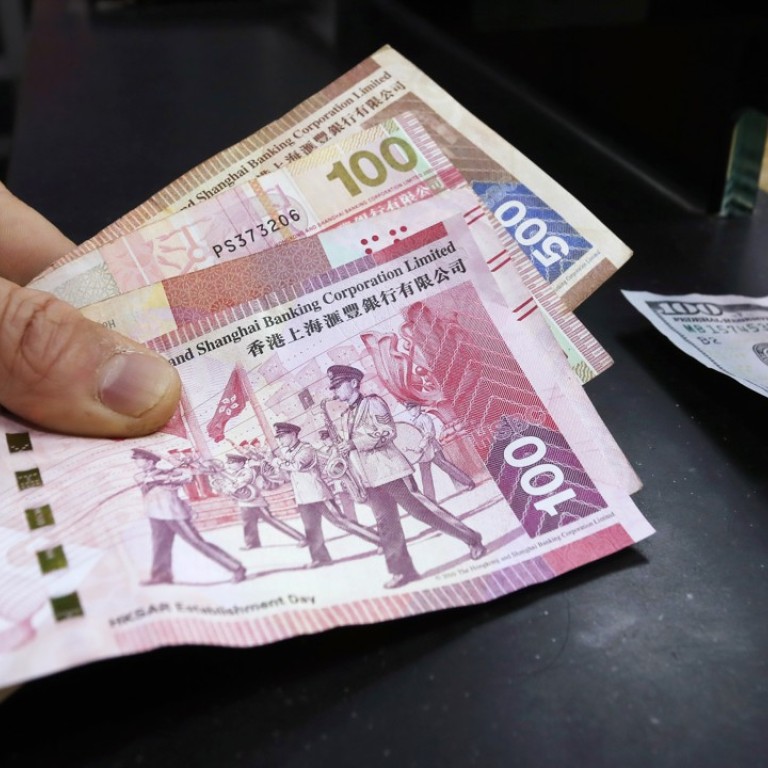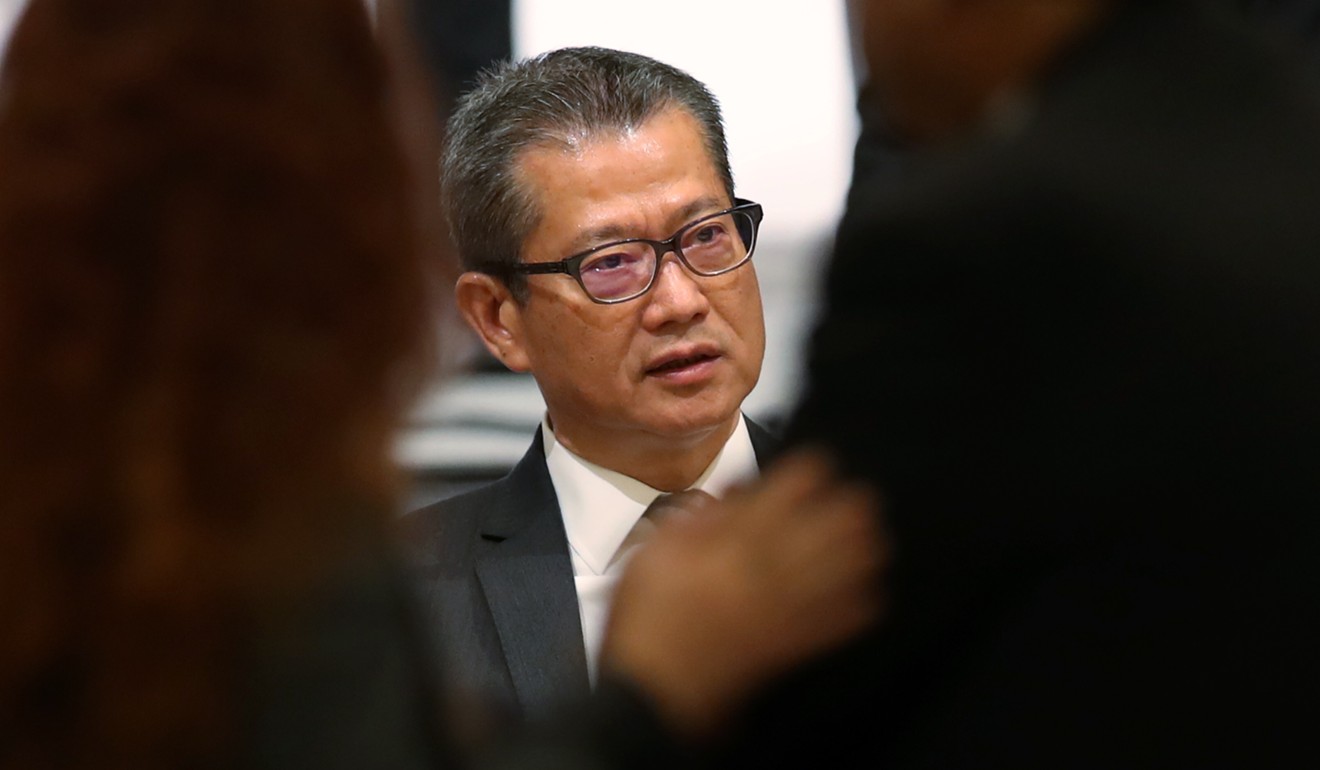
Don’t worry about the Hong Kong dollar but watch out for higher rates, city’s financial chief says
In his blog, Financial Secretary Paul Chan says the city’s monetary body is well-placed to deal with a weaker currency after spending almost HK$10 billion to prop it up
Hong Kong's monetary authority spent HK$9.96 billion (US$1.27 billion) to prop up the city's currency last week, but while the move is no cause for alarm, people should not expect the low-interest rate environment in the city to last forever, according to a blog by the financial secretary.
The Hong Kong dollar dropped to HK$7.85 against the US dollar at the end of last week, the lowest level in 35 years. The Hong Kong Monetary Authority is obliged to step in to prevent the currency trading beyond either end of the HK$7.75 to HK$7.85 trading band introduced in 2005.
“The Hong Kong dollar’s recent weak performance is as expected, but Hong Kong’s people do not need to worry too much,” said Financial Secretary Paul Chan Mo-po in his blog on Sunday. “The government has prepared early and has enough money to deal with the capital outflow.”
On Friday, the HKMA said it had sold HK$3.26 billion worth of US dollars. Its deputy chief executive, Howard Lee, said that it stepped in to buy the Hong Kong dollar and sell the US currency in two separate transactions, one during European trading hours on Thursday, and the other before the close of trading in New York.

Chan said that at the time of writing the blog on Sunday, the authority had made four transactions.
He said that since the introduction of quantitative easing by the US in 2009, there had been roughly US$130 billion worth of capital flowing into Hong Kong. The HKMA had invested the money, equivalent to HK$1 trillion, in highly liquid, high quality US dollar-denominated assets, which could be converted to US dollar cash quickly.
“Even if any significant fund outflows in extreme scenarios happened, the HKMA can meet the conversion demand,” said Chan. “The Hong Kong dollar monetary base amounted to about HK$1.7 trillion, which together with the US-dollar assets that had flowed in, acted as a large buffer against capital outflows.”
With the capital moving out of Hong Kong, banks would see a contraction of their balances and they would raise Hong Kong dollar interest rates when the balances drop to a certain level, Chan wrote. At that point capital outflows would slow or even stop and the Hong Kong dollar would be stable.
“It is a normal operation under the peg scheme,” Chan said.
The intervention marks the latest step in the tightening of Hong Kong’s monetary conditions, sparking concerns among homeowners about possible interest rate increases that would mean higher mortgage repayments.
Chan said that Hong Kong people should not expect the low-interest rate environment in the city to continue, and should be cautious when borrowing money and better manage their risk.
“Hong Kong people should … consider whether they can deal with the situation when interest costs are going up, and should also pay attention to the potential impact on their investments brought by the rise of interest rates,” Chan wrote.
“People should cut their coat according to their cloth and better manage their risks.”
Separately, speaking at a symposium on Sunday, HKMA chief executive Norman Chan Tak-lam said the authority is committed to maintaining the purchasing power of the Hong Kong dollar, but stopped short of mentioning the recent intervention. He added that the city’s Exchange Fund – the war chest used to intervene in the currency market – was “the final defence of Hong Kong’s financial security”.

